Would you love to become a vegan activist and be really effective when speaking up for the animals? Find our top tips around animal activism here.
Going vegan is a great experience for many people – but the truth is that once you have really opened your eyes to what is going on in the world and especially the animal industry, you really feel the need to spread this knowledge around.
So in order to act on your new view of the world, you might seek out advice on how to become a vegan activist and change many lives.
But unfortunately, it’s not as easy as that. The harsh truth of how animals are treated and exploited can leave you frustrated, angry, and even depressed.
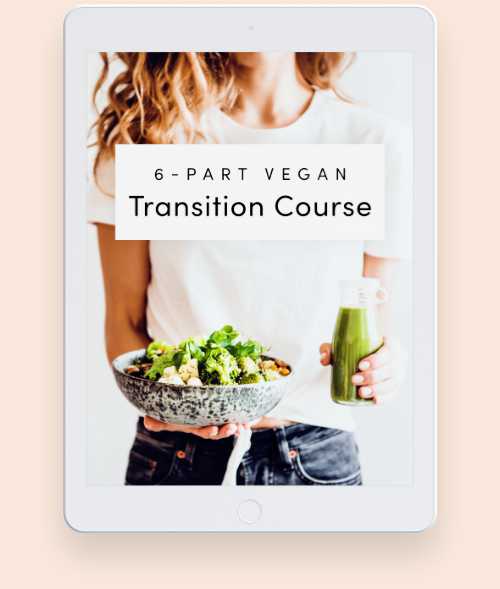
join our free vegan course!
Learn how to thrive on a plant-based diet with practical tips & a 3-day meal plan!
Acting on these feelings and trying to push omnivores to give up all animal products isn’t an effective way of activism, and it surely doesn’t help the animals at all.
Change happens one person and one step at a time and it usually needs more than just one conversation in order to convince someone and make them want to go vegan as well.
So in order to distance yourself from the topic a little, you can view vegan activism like an investment firm: you put in your “money” (time and effort) in order to achieve the most success (people getting closer to veganism).
Since we all have only so much time and energy, it’s important to use these resources wisely.
We really need to always have advocacy in mind and do what works best in order to save as many animals (as well as people and parts of the environment!) as possible – without just saying how frustrated and angry we really feel and shoving this into other people’s faces.
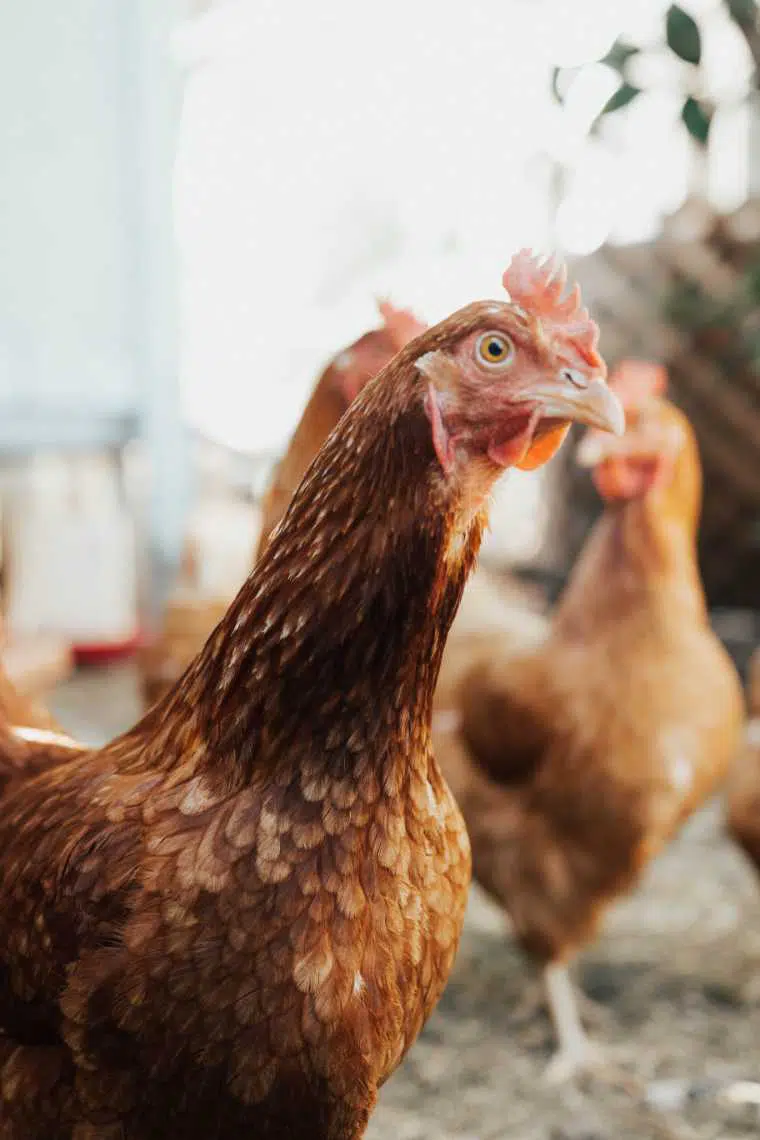
Why Become a Vegan Activist
If you found your way to this article, you are probably aware of many reasons why to go vegan and live a more ethical lifestyle. Perhaps you live with non-vegan family and need some great comebacks for arguments with them?
Let’s look at some facts about why it’s good to be an animal rights advocate — and what area to focus on.
More than 9 billion animals are raised and slaughtered for food each year in the US alone. This means that 99% of all animal exploitation happens in this industry and the other 1% has to do with clothing, hunting, entertainment, experimentation in labs, or euthanizing in shelters.
Focusing on farm animals that are raised for food has the biggest impact overall – and not just because the least amount of money is donated in order to help them.
It means intense suffering for their whole entire lives, which we could avoid by using our immense power 3 times a day: for breakfast, lunch, and dinner.
Going vegan doesn’t directly save any existing animals from their fate, but it’ll reduce the number of animals being bred into this system in the future incrementally. Add to this the impact of other people you can convince to go vegan and this can really make a difference!
Unfortunately, it is so normalized and ubiquitous in our society to consume animals (and ads keep on motivating us to do so) that we need to be strategic when talking about animal ethics.
So, here are some ideas to become an effective vegan activist — perhaps you’ll even be the next big advocate on YouTube like your role models Earthling Ed or Joey Carbstrong!
How to Become a Vegan Activist
Not sure where to start? Any of these following tips help you be a good advocate for the vegan lifestyle. We’re not saying that taking a different approach is always bad, it really depends on your current situation and personality.
1. Spend Time With Non-Vegans
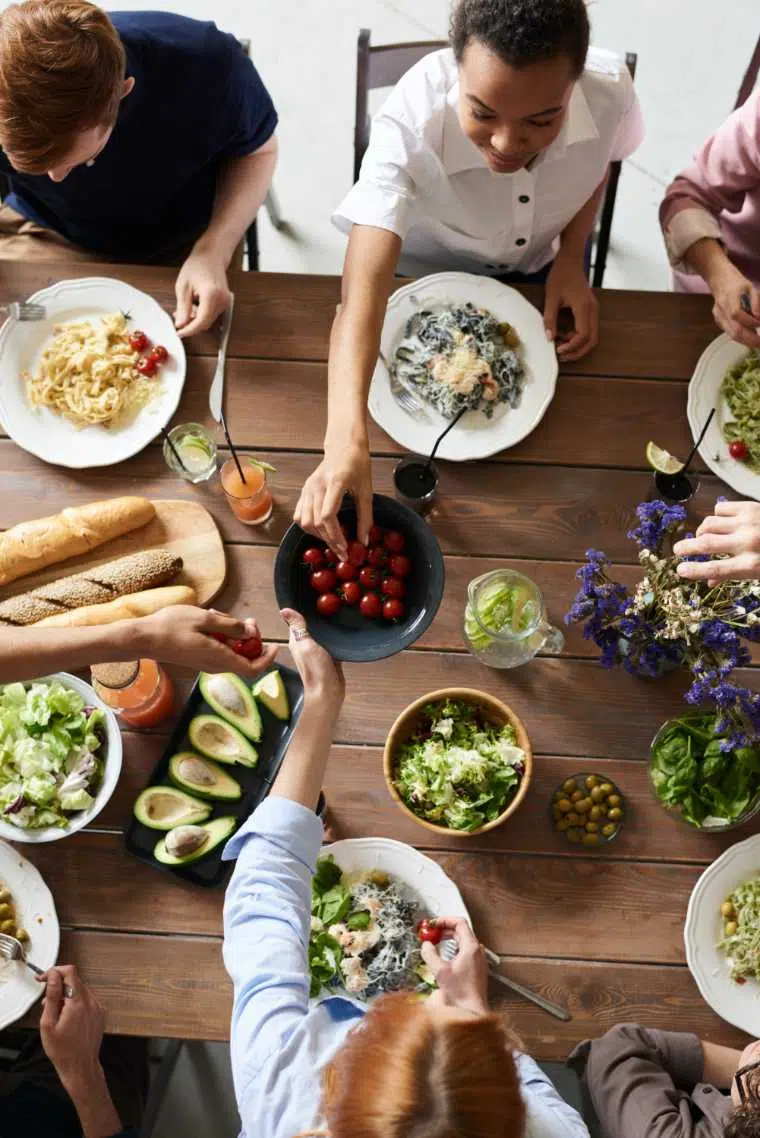
Every conversation is an opportunity to change lives and to change people… so spend time with those who are different than you.
Don’t hide in the vegan crowd but try to understand meat-eaters and show off your amazing lifestyle because plant-based eating is still a minority, and most people don’t understand the reasons behind it. If more people knew, they might change their opinion and behavior!
So it might be unfair to judge people who eat meat and instead of doing that, you can view them as pre-veg, as people who would be vegan if they knew all the truth behind it.
It’s important to stay friendly to omnivores because you can get a foot in the door, spread some inspiration which can then cause a ripple effect if you spread tactful awareness about veganism.
2. Let People Decide to Change
We cannot force anyone to change their diet, even though we might nag or even threat people… this will only cause resistance and drive people away.
Nobody likes to be approached that way, so it’s much more likely that you’re turning people off if you seem to be very pushy.
Even if we succeed in forcing someone to change, it won’t last because it’s not for the right reason. Everyone has to do it for themselves – in order to create long-term change, the decision has to come from within.
We’re essentially just salespeople for this vegan cause and for the sake of the animals, we need to sell well.
3. Match Your Audience

Know what other people you want to approach look like and how they talk so they feel like they’re talking to someone just like them.
Always adjust your approach since first expressions are everything! People, unfortunately, are quick to judge, especially regarding appearance and tone – this means a good presentation is everything.
So we need to look similar to our audience because we’re much more likely to make a good impression that way. And since we’re the minority, our audience is the majority of the population.
This means looking mainstream is a good idea! If you want to talk to college students, wear a hoodie and backpack, if you talk to people at a rock concert, then wear a band shirt.
After the first good impression is made, you can talk about your core message which should correlate with the interests and values of the audience.
When someone loves the outdoors, you might want to get into environmental aspects. If your conversation partner loves their dog, talk about how similar dogs are to pigs.
Show them how your cause aligns with their interests and values! This way, you also align their personal motivations with what’s best for animals or the planet.
4. Show Everyone’s Doing It
Most people want to fit in and don’t want to change if they think they’re the only ones doing this. The phenomenon of FOMO (fear of missing out) has been getting popular and therefore, people are more likely to do something when it seems like everyone around them is doing the same.
This is shown everywhere in marketing: the best way to sell something is to make it seem mainstream and popular. It’s important to show people that reducing meat is something everyone is already doing.
By showing that celebrities and other people in their age group are already embracing a vegan diet, they are much more likely to embrace this too.
5. Be Kind and Respectful

This is of utmost importance since most people expect vegans to be angry, self-righteous and radical – so we need to show them the opposite.
And even if someone is unkind to us, being nasty is almost never effective. It won’t positively influence the person you’re talking with and anyone overhearing the conversation will not think anything good about it either.
So ask yourself in every situation “What is the response that is in the best interest of animals?”
Remember that change is often a long and gradual process… and although going vegan seems very easy to us, to others it might be very daunting. Imagine your advocacy more like a marathon than a sprint: a series of conversations where the challenge is always to be as kind as possible.
Of course, some people will say things to you that are offensive on purpose… but even many of these people are reachable. The people who argue the most with vegans are usually very conflicted and on the verge of changing their behavior – that’s why so many of them act so defensively.
So answering with kindness and respect cannot hurt and it might even change some people around. It’s never helpful to any animal if you’re being disrespectful or angry in a discussion about animals.
Remind yourself of how you thought and felt before you knew all these things that led you to veganism.
Try to put yourself in their shoes and be aware that they might have walls build up in order to protect themselves and defend their actions. It’s always a good thing to relate to them by saying “good question, that’s exactly what I was thinking a while ago before I learned that…”.
6. Ask Questions and Avoid Monologs
Especially ranting ones! When someone asks you about your diet and lifestyle choices, you could go into a lecture about every single reason for veganism like practices on animal farms, the suffering, the negative health issues, the destruction of the planet and so on.
This is when the other person will likely become overwhelmed or bored and then just tune out.
It’s a lot better to have conversations where we allow others to be active participants – so if someone asks you about your diet or about animals, you can answer briefly and then ask them a question back, listen to their answer and then have a conversation about the issues.
This way, you’ll have their thought processes lead them to their conclusions.
So when someone asks you “Why do you eat a vegan diet?” you can respond with “I learned about aspects of animal farming and I strongly disagree with them. You also care about animal cruelty, right?” and from there on you could go into a dialogue.
This is so effective because it makes people think about why they eat what they eat and how they justify their behavior.
They will also feel heard and are more likely to tune in to what you have to say so you’ll learn what some of the challenges are for others that keep them from eating a plant-based diet.
Even if you get questions that seem really obvious to you, questions you have heard a hundred times before – keep in mind that the person might actually be serious and has never asked this before.
Also, remember that everyone wants to be liked and thinks of themselves as a decent person – if you grant everyone to be heard, you’ll be far more effective in this interaction.
Plus, everyone witnessing this conversation will have a good impression of us and vegans or animal activists in general.
You can learn conversation techniques when going to the popular Cube of Truth events around the globe!
7. Always Be Optimistic, Upbeat and Positive
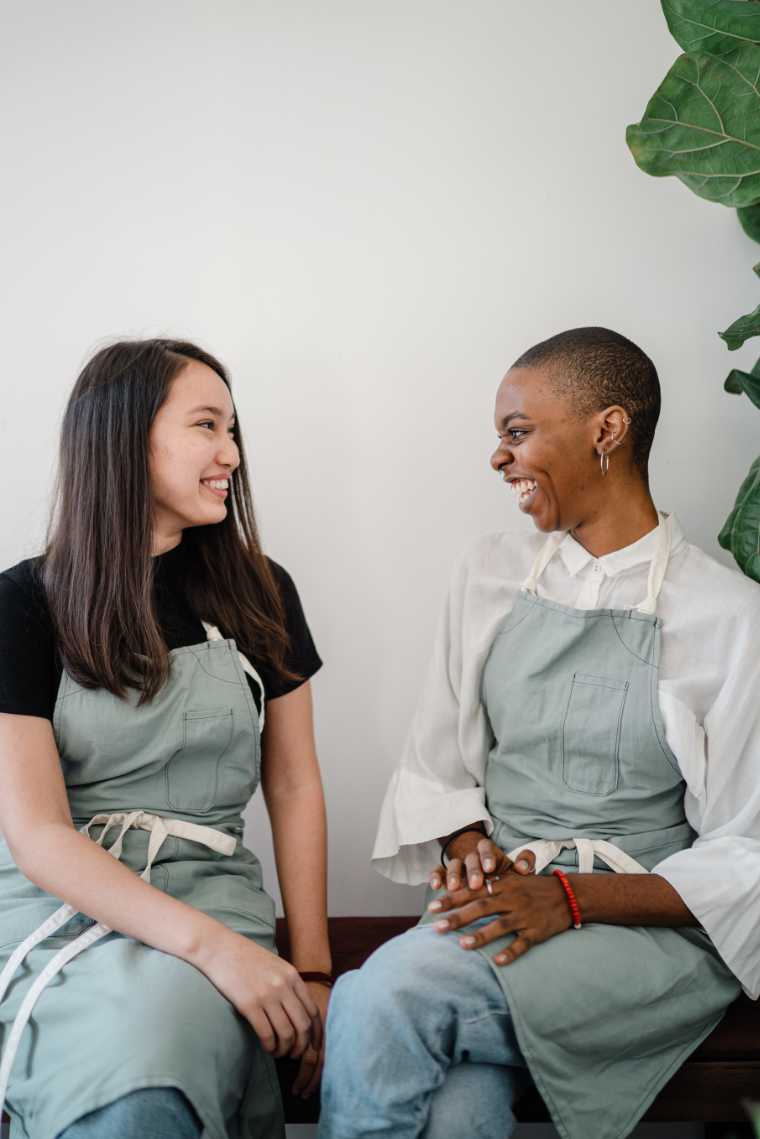
Though it can be so hard to do this in the face of suffering, being very depressed or angry about everything you know is just likely to push people away or keep them from even listening to you.
Though sharing some graphic pictures can be effective in getting people to think and change their behavior, there is a caveat to this: you need to give them an instant solution to this problem.
Graphic pictures need to be followed up with a powerful message, otherwise, they are not going to be effective. Write or say things like “You can do something about this!” and then share a website or some tips people can follow to change their diet. It’s all about balance!
And while dishing up some harsh and truly horrible reality can be effective in waking someone up, if that’s everything you do then people will tune you out.
It’s much better to post or talk about other stuff that is interesting to you and makes you relatable. We have to ask ourselves “What would be most effective in regards to change?”
Constant anger clearly will not be as effective for animals as a good-natured attitude. Optimism is infectious and works like a magnet for others!
8. Make Things Simple and Easy
The more difficult something seems, the less attractive it will become. So it is our job to show people how amazing and easy it is!
Being vegan shouldn’t be about perfection or causing no cruelty at all – because this is unrealistic and not achievable.
Everything we do possibly causes something negative and even in the process of harvesting, some animals get caught in the machines. Not to mention that it’s always possible to step on tiny animals when walking around!
Living in a place where we can influence others is most effective – the animals don’t need our purity when we live in a cabin in the woods. Veganism must be about making a difference for the animals first and foremost, but also workers’ rights, the environment and the health crisis.
Adopting a vegan diet means we’re not contributing to the suffering and slaughter of the 9 billion animals per year… getting just 1 more person to do so, you’ll “save” twice as many animals. But if you do something that prevents another person from adopting a vegan diet, that hurts animals.
So if you’re in a restaurant and worry about your food being cooked right next to some meat or if you say you cannot eat the bread because you don’t know what’s in it — you might make veganism seem really complicated to non-vegans.
In the big picture, the pursuit of purity does more harm than good. If just one person decided to change their diet because of you, you could have a much larger impact!
A very good way to show how easy and delicious veganism can be is to bring along some great vegan food to share with others! Don’t make it seem like a chore and just show the world how wonderful it is.
There are also so many vegan fast food options at restaurants these days, so introduce your friends to them!
9. Make Reasonable Requests

Even though some people are now intrigued by the way you are and what you’re doing, others will still say they can’t do it.
The best thing to do in this situation is to ask them why and then adjust your strategy to the individual person. If someone says “I couldn’t give up cheese”, then you could suggest giving up everything else and just keep on eating cheese.
Instead of just telling them “Oh okay, then you can never be vegan”, you give them a reasonable step to take in the right direction. You also show that you care about them, that you’re flexible and understanding and that helping animals is easy as opposed to all-or-nothing.
Everyone is far more likely to act on a request that sounds reasonable to them… the goal is NOT to settle for less and lose sight of what is important but to get the foot into the door.
This is how the Meatless Monday campaign works because it shows people all the different vegetarian meals they could eat on one day of the week… from this point, the next step could be to eat 50% of their meals meatless which then doesn’t seem too much to ask for.
They would also identify themselves as someone who eats less meat and is much more likely to go full vegetarian.
If we hadn’t started this request of a Meatless Monday, they would be very unlikely to ever make such a huge step as going fully vegetarian or vegan! For others, going dairy-free is a great next step.
Asking for small changes in the beginning is much more effective than asking for bigger changes right in the beginning.
10. Never Stop Inspiring
Get comfortable telling your transition story into veganism and what life is like as a vegan. Share some vegan transformations on your social media profile so that the public image of vegans can grow.
Ask friends or family to watch a vegan documentary together and be sure to offer delicious vegan snacks when they come over!
For some more variety, think about ordering a vegan snack box and make some fun taste tests with your friends. For birthdays or on Christmas, be sure to get everyone an awesome vegan gift or wear cool apparel that makes people smile.
How about hosting a vegan cookout that features your favorite plant-based burgers or sausages or gifting a delicious homemade raw cake to someone for their birthday?
You can also talk about it’s possible to follow a low-fiber vegan diet, low-FODMAP vegan diet, low-carb or high-protein, whatever their dietary concern is.
All of these little hints, experiences and conversations can accumulate so others decide to give this “vegan thing” a try.

Final Words on Vegan Activism
We need to be more inclusive than exclusive, so our community can continue to grow. The more willing we are to include people into our movement, the more powerful we become.
Each of us can inspire many individuals to change their diet and lifestyle, which means countless of animals can be saved. Each of the inspired people can inspire many more and so on.
As a bonus tip: you can take your activism over to the internet as well and just constantly inform people who post or talk about how much they like meat or cheese.
Commenting below videos on YouTube is a good idea since this tactic has changed quite a few people already, including pretty big YouTube channels.
Commenting on blog posts is also great or let your voice be heard in different forums. Remember to follow the other tips above anyways, even though people may say way nastier things online.
The good thing is that they don’t see your immediate reaction of anger or frustration and you can learn to choose your words wisely.
If you have a problem keeping your raw emotions at bay, be sure to take some deep breaths before going into a conversation like this where you might be confronted with statements that will make you want to smash your head.
We get it – reacting the way you would like in this moment might feel good to you, but it probably won’t help your cause in any way.
More Vegan Guides
If you liked these tips for becoming an effective vegan activist, be sure to check out the following articles next!
Have you been successful in inspiring someone to try out a vegan diet? Which approach did you use and would you consider yourself a vegan activist? Let us know in the comments below and Pin this article here.


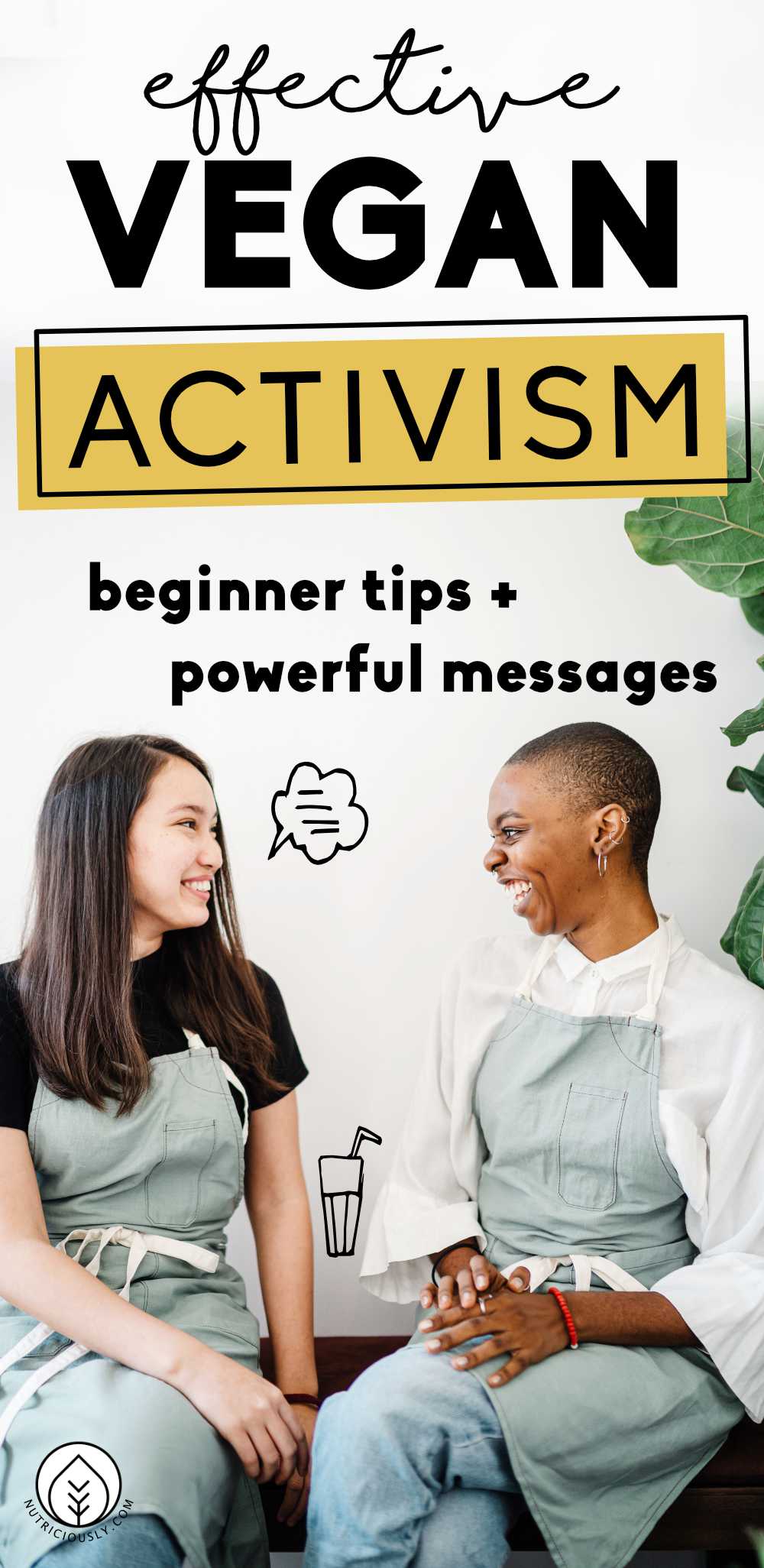

 Alena Schowalter is a Certified Vegan Nutritionist who has been a vegetarian since childhood and vegan since 2012. Together with her husband, she founded nutriciously in 2015 and has been guiding thousands of people through different transition stages towards a healthy plant-based diet. She’s received training in the fields of nutrition, music therapy and social work. Alena enjoys discussions around vegan ethics, walks through nature and creating new recipes.
Alena Schowalter is a Certified Vegan Nutritionist who has been a vegetarian since childhood and vegan since 2012. Together with her husband, she founded nutriciously in 2015 and has been guiding thousands of people through different transition stages towards a healthy plant-based diet. She’s received training in the fields of nutrition, music therapy and social work. Alena enjoys discussions around vegan ethics, walks through nature and creating new recipes.
This was very helpful. I realized I was not giving vegan to be peers and students the chance to engage in dialog because I went straight into lecture mode. While some people love my lectures and I have had people go vegan that way. It is true that when I keep things breif and turn it more into a Q -Q A-Q Q-A format I get more engagement. I also point people to documentaries such as Forks over knives especially if they are interested in taking dairy out of their diet.
Thank you
Thanks so much for the amazing comment! I’m happy that the article was helpful to you. I used to make all these mistakes myself for years – especially bugging people every time I saw them and talking about food and veganism. That was a strong habit to break and finally see others for who they were instead of categorizing them into “vegan/non-vegan”.
Fortunately, there are more and more angles from which people may come across veganism and health is most always the best place to start since everyone is interested in their own well-being.
Gosh, don’t you just love how the answer to so many problems is: veganism :)
Excellent excellent article!!! I am going on ten years being vegan. I too have been guilty of posting graphic pics on my FB page but not following up with a solution. Thank you for showing me how this is so wrong. I will be sharing this definitely with my vegan son and 15 year old vegan granddaughter. ??
Hi Joy,
thanks for the lovely comment! Wow, it’s amazing to hear that your family consists of so many vegans :) I have come up with this article after a couple of years of experimenting and doing my research – I myself have been guilty of quite a few mistakes in the past and even the present. It just feels like we’re living in a parallel universe sometimes.
Hope this finds you well,
Alena
Surprisingly full of eureka moments and steps that can be taken instantly and on a daily basis- and thus leverage frameworks like ‘the ripple effect’ and ‘the tipping point’.
This is what got me strapped on to a rocket from simple sailing in my mission toward the animals.
Thank you very much for this article!
I’m looking to use it daily.
I hope I can reach out to you (the writer) in the course of the greatest mission of my life, if and when needed.
This is my step toward building social accountability with respect to my mission by commenting here, and the best part being that we’re all in together in this journey.
Thanks so much for your amazing comment! You have it in you to be the change you wish to see in this world.
Much strength & love to you!
Alena x
I’m newly vegan after 25 years of being vegetarian and I’m finding it relatively easy, however, my urge is to convert everybody and I know that it can be counter productive, as my feelings are so strong about it! You’ve given me much food for thought in this article and spurred me on to approach people in a different way.
Great advice….Thank you